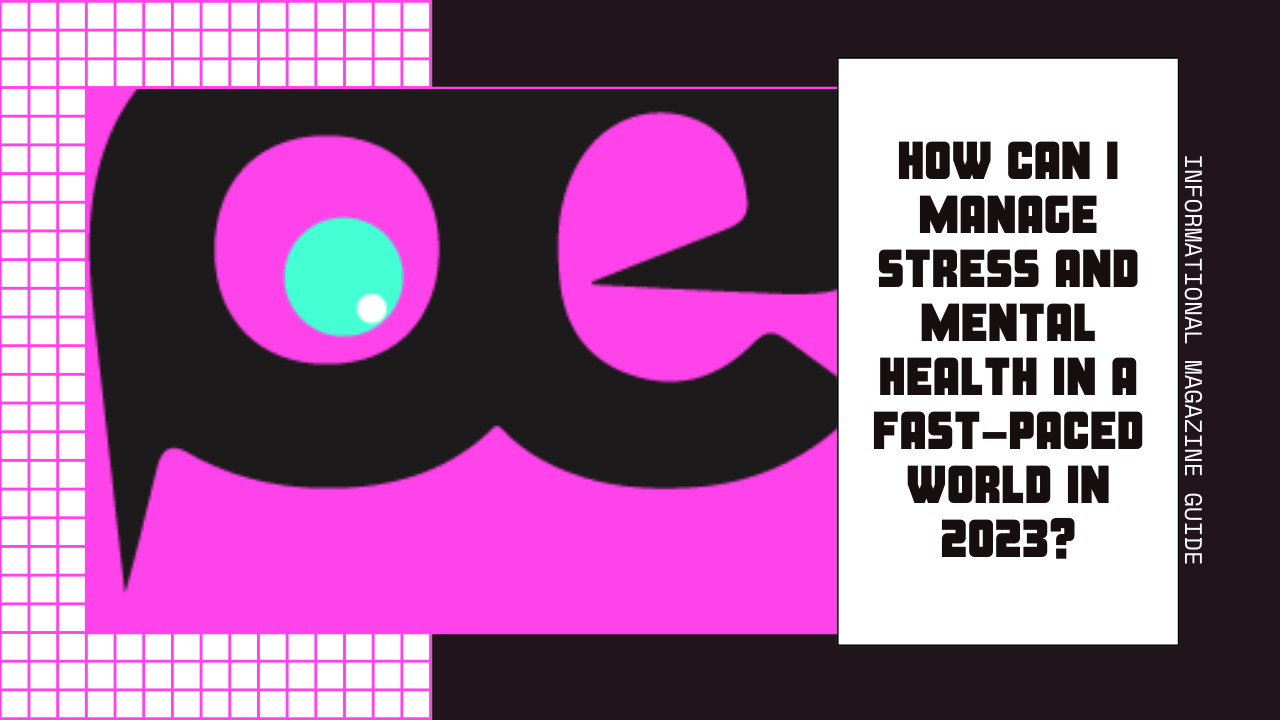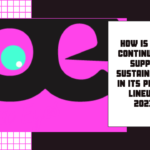Living in a fast-paced world can be exhilarating, but it also brings its share of stress and mental health. In 2024, where the pace of life seems to be continually accelerating, it becomes crucial to prioritize stress management and mental well-being. This comprehensive guide explores practical strategies and insights to help individuals navigate the challenges of a fast-paced world while maintaining a healthy mental state.
Understanding Stress and Mental Health:
1. Recognizing the Signs of Stress:
Before diving into management strategies, it’s essential to recognize the signs of stress. These may include physical symptoms like headaches or digestive issues, behavioral changes such as irritability or changes in sleep patterns, and emotional indicators like increased anxiety or mood swings.
2. The Impact of Fast-Paced Living:
Living in a fast-paced world often involves multitasking, high expectations, and constant connectivity. While these elements can contribute to productivity, they can also lead to burnout, anxiety, and other stress and mental health challenges. Recognizing the impact of a fast-paced lifestyle is the first step in addressing its effects on mental well-being.
Building a Foundation for Mental Well-Being:
1. Establishing Healthy Habits:
Creating a foundation of healthy habits is crucial for mental well-being. This includes maintaining a balanced diet, getting regular exercise, prioritizing sufficient sleep, and staying hydrated. These habits provide the body and mind with the essential support needed to cope with stress.
2. Mindfulness and Meditation:
Mindfulness and meditation practices offer powerful tools for managing stress. Incorporating mindfulness into daily life involves staying present in the moment, which can reduce anxiety about the future and regrets about the past. Meditation practices, even for a few minutes a day, can promote relaxation and clarity of mind.
3. Establishing Boundaries:
In a world where boundaries between work and personal life can blur, setting clear boundaries is crucial. This includes defining work hours, limiting screen time, and designating specific periods for relaxation and self-care. Boundaries help prevent burnout and promote a healthier work-life balance.
Navigating Work-Related Stress:
1. Time Management and Prioritization:
Efficient time management is a key skill in a fast-paced world. Break tasks into manageable segments, prioritize based on importance and deadlines and avoid over-committing. Learning to say no when necessary is a crucial aspect of effective time management.
2. Embracing the Power of Breaks:
Taking breaks, whether short walks, deep-breathing exercises, or moments of quiet reflection, can rejuvenate the mind. Breaks contribute to increased focus, creativity, and overall productivity, countering the negative effects of constant work pressure.
3. Remote Work Strategies:
For those working remotely, maintaining mental health requires intentional strategies. Creating a dedicated workspace, establishing a routine, and fostering virtual connections with colleagues can mitigate feelings of isolation and enhance overall well-being.
Cultivating Positive Mental Habits:
1. Positive Self-Talk:
The way individuals speak to themselves internally significantly influences mental well-being. Cultivating positive self-talk involves challenging negative thoughts, practicing self-compassion, and acknowledging achievements and strengths.
2. Gratitude Practices:
Practicing gratitude involves acknowledging and appreciating the positive aspects of life. Keeping a gratitude journal, where individuals regularly write down things they are thankful for, can shift focus away from stressors and contribute to a more positive mindset.
3. Engaging in Hobbies and Passion Projects:
Allocating time for hobbies and passion projects is crucial for mental well-being. Engaging in activities that bring joy and fulfillment provides a necessary counterbalance to the demands of a fast-paced lifestyle.
Connecting with Others:
1. Nurturing Social Connections:
In a digitally connected but potentially isolating world, nurturing genuine social connections is vital. This includes spending quality time with loved ones, reaching out to friends, and participating in community activities. Social connections serve as a support system during challenging times.
2. Seeking Professional Support:
For individuals facing persistent stress or mental health challenges, seeking professional support is a proactive step. Therapists, counselors, and mental health professionals offer valuable guidance and coping strategies tailored to individual needs.
Technology and Mental Well-Being:
1. Digital Detox Practices:
While technology is integral to modern life, it’s essential to balance its use. Incorporating digital detox practices, such as designated screen-free periods or device-free zones, helps mitigate the potential negative impact of constant connectivity.
2. Mindful Technology Use:
Practicing mindfulness in technology use involves being intentional and present during digital interactions. This includes limiting mindless scrolling, setting app usage limits, and choosing to engage with technology consciously.
Resilience and Adaptability:
1. Building Resilience:
Resilience is the ability to bounce back from challenges. Building resilience involves developing a positive mindset, learning from setbacks, and cultivating adaptability. Resilient individuals are better equipped to navigate the uncertainties of a fast-paced world.
2. Embracing Change:
In a rapidly evolving world, the ability to embrace change is a valuable skill. Recognizing that change is inevitable and viewing it as an opportunity for growth can reduce resistance and stress associated with uncertainties.
Conclusion:
Managing stress and mental health in a fast-paced world is an ongoing journey that requires self-awareness, intentional practices, and a commitment to self-care. By incorporating these strategies, individuals can navigate the challenges of modern life while fostering a resilient and positive mental state. Balancing the demands of a fast-paced lifestyle with proactive mental health practices contributes to a fulfilling and sustainable approach to well-being.





